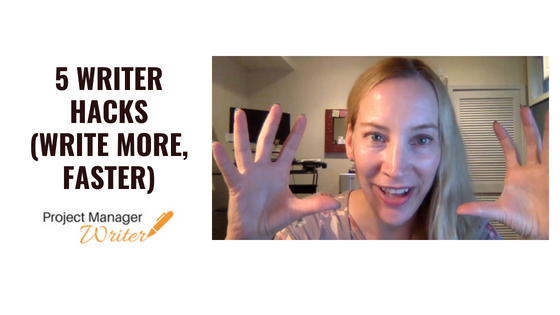How does one become a productive writer? With our busy lives, how do we find time to write?
To answer that question, what are you willing to give up? How much do you want to write your book? If your dream is to become a full-time author—how badly do you want that life?
#1 – Define your writing goals.

Image by Christian Ferrari
Part of becoming a consistent author means defining your goals. If you want to write a novel in one year, your writing habits will be less demanding than someone who wants to write four.
When I finished my first novel, I wrote 80% of it in one month during National Novel Writing Month (NaNoWriMo). The event encourages competition. To “win,” you must achieve 50K words—the arbitrary length the organizers deemed to be a full-length manuscript. The goal becomes clear—I had to write 1,666 words every day over 30 days.
The other 20% of my manuscript? It took me a year to write it. Why? Because I had no goal.
Thanks to a demanding new day job, I ignored my writing and thought that I would find time to write here and there. When I was not focused on a writing goal, I would let any number of other activities get in the way. Without a clear goal, I had a hazy idea that I wanted to write fiction and that maybe I’d finish a book in a year.
To become a more productive writer, you MUST establish clear, specific goals and deadlines. Otherwise, you’ll find numerous ways to procrastinate with your writing.
#2 – Change your relationship with your day job.
Unfortunately, I worked my corporate 9-to-5 job on weekends to “catch up” because I was overloaded. Family obligations, household chores, and everyday life required the rest of my attention. Do you find yourself in this same situation?

Source: https://unsplash.com/photos/nvzvOPQW0gc
When you let your life be dominated by someone else’s work, you are doing yourself a disservice. Why was I working weekends at my corporate job? I was already putting in 50+ hours a week. Enough was enough. I decided that the job was not a good fit for me if I was too drained to spend any time on what mattered most to me—writing.
How can you change the situation? Can you work your job for the minimum required hours per week? Are there changes you can make to spend more time on writing and building your business? Does a bonus really matter if it requires more time and commitment from you—time that takes you away from writing?
Author Joanna Penn reduced her working days from five to four so she could build her income to a point where she could quit her day job entirely. Likewise, I made the decision to leave my full-time job and moved to part-time consulting work.
Please don’t take this as “Courtney says to go quit your job” advice. The decision to leave my full-time job took years and was only after having several books published and author contacts that I had built up over time.
These decisions can be tough and need to be carefully considered over a long period. What small things can you change starting now that might result in you leaving your day job someday?
#3 – What can you sacrifice to spend more time writing?
I write about 1,200 words per hour, more if I’m on a roll. I won’t go to bed for the night unless I get my hour of writing done.
As I write this, it’s 7:00 pm on a Wednesday evening because I had a busy day with a client book launch. My ideal day is to get my writing done first thing in the morning.
What’s your best time of day to write? Is it first thing in the morning? Most authors I know prefer morning writing because their brain is rested and there are fewer distractions first thing in the day.
Others are night owls and prefer evening writing. Some people wait for the weekend and binge-write, spending hours at a cafe pounding out thousands of words.

Source: startupstockphotos.com
What can you give up for that extra hour of consistent writing every day? Can you…
-
Get up one hour earlier (or change your bedtime)?
-
Give up watching TV at night?
-
Hire a cleaning service?
-
Have your groceries delivered?
-
Delegate dinner preparation to someone else in your family?
-
Eat lunch alone every day and write?
My husband and I got rid of cable and cut down our TV time. We still stream an hour or two of our favorite shows each night, but losing the commercials has been a time saver.
Other time-saving techniques:
-
I wear minimal makeup and let my hair air dry.
-
Lay out your clothes the night before, so you’re not stuck deciding what to wear.
-
Hire a cleaning service and use the time to write instead.
-
Have a service deliver groceries to save 1.5 hours weekly.
-
I changed my job to avoid a long commute.







Leave A Comment